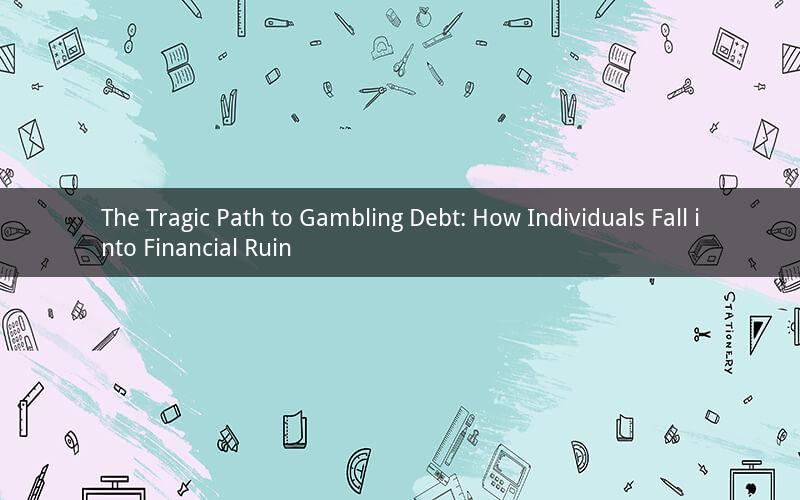
Introduction:
Gambling debt is a pervasive issue that plagues countless individuals worldwide. It is a complex issue with numerous factors contributing to its development. This article delves into the various ways in which people get into gambling debt, highlighting the risks associated with this addictive behavior.
1. The Allure of Easy Money:
One of the primary reasons individuals fall into gambling debt is the allure of easy money. The promise of winning big quickly and effortlessly can be irresistible to many. Whether it is playing online slots, betting on sports, or participating in poker tournaments, the prospect of winning substantial sums of money can lead individuals to take excessive risks and accumulate debt.
2. Emotional Distress and Escape:
People who are dealing with emotional distress often turn to gambling as a means of escape. The thrill of the game, the sense of excitement, and the temporary relief from stress can be intoxicating. However, this temporary relief often leads to a spiral of debt as individuals continue to gamble in an attempt to recapture the same emotions.
3. Peer Influence and Social Pressure:
Peer influence and social pressure play a significant role in the development of gambling debt. Many individuals start gambling as a way to fit in or impress others. The desire to keep up with friends or participate in exclusive gambling circles can lead to excessive betting and subsequent debt.
4. Lack of Financial Literacy:
A lack of financial literacy can be a contributing factor to gambling debt. Many individuals are not aware of the potential risks associated with gambling or the importance of budgeting and responsible gaming. This lack of knowledge can lead to poor decision-making and the accumulation of debt.
5. Accessibility of Gambling Platforms:
The widespread availability of online gambling platforms has made it easier than ever for individuals to access gambling opportunities. With just a few clicks, individuals can engage in various forms of gambling from the comfort of their own homes. This ease of access can contribute to the development of gambling addiction and subsequent debt.
6. The Role of Advertising:
The aggressive advertising and marketing campaigns of gambling companies can also contribute to the development of gambling debt. The portrayal of gambling as a glamorous and exciting activity can create unrealistic expectations and encourage individuals to take excessive risks.
7. The Psychological Impact:
Gambling addiction can have a profound psychological impact on individuals, leading to feelings of guilt, shame, and desperation. The psychological pressure to recover the lost money can drive individuals to continue gambling, even when they are aware of the consequences.
Q1: What are some common signs of a gambling problem?
A1: Common signs of a gambling problem include secretive behavior, lying about gambling activities, spending excessive amounts of time and money on gambling, neglecting responsibilities, and experiencing negative consequences as a result of gambling.
Q2: How can individuals overcome a gambling addiction?
A2: Overcoming a gambling addiction requires a combination of professional help, support from friends and family, and developing healthy coping mechanisms. Therapy, support groups, and self-help strategies can all be effective in overcoming this addiction.
Q3: Can gambling debt be legally enforced?
A3: Yes, gambling debt can be legally enforced. Creditors can take legal action against individuals who owe gambling debts, including garnishing wages, seizing assets, and filing lawsuits.
Q4: How can family and friends support someone struggling with gambling debt?
A4: Family and friends can support someone struggling with gambling debt by offering emotional support, encouraging them to seek help, and helping them develop healthy financial habits. It is important to approach the situation with empathy and understanding.
Q5: Are there any resources available to help individuals overcome gambling debt?
A5: Yes, there are numerous resources available to help individuals overcome gambling debt. These resources include counseling services, support groups, financial counseling, and debt management programs. Seeking professional help is an essential step towards recovery.